How does DiSC help us Understand Emotional Intelligence?
Since Daniel Goleman’s bestselling book was released in 1995, Emotional Intelligence (EQ) has captivated the corporate world.
Goleman, himself, was surprised at how quickly the businesses latched onto this new theory, particularly in leadership and employee development. However, the adoption of EQ shouldn’t have been surprising.
Year after year, sites like Indeed, Glassdoor, and colleges/universities cite soft, interpersonal skills as the top desired skill set employers want to see in their employees. Within all these skill sets is the need for individuals to choose how to respond rather than simply reacting based on how they feel.
You may know DiSC as a tool that can help bridge the communication gap between individuals. It can also help a person develop their EQ.
In this article, we will cover the following:
Listen in as Dr. Mark Scullard, the lead product developer for Everything DiSC, presents his thoughts on how DiSC can help someone understand emotional intelligence by looking at our psychological needs.
What does Emotional Intelligence (EQ) measure?
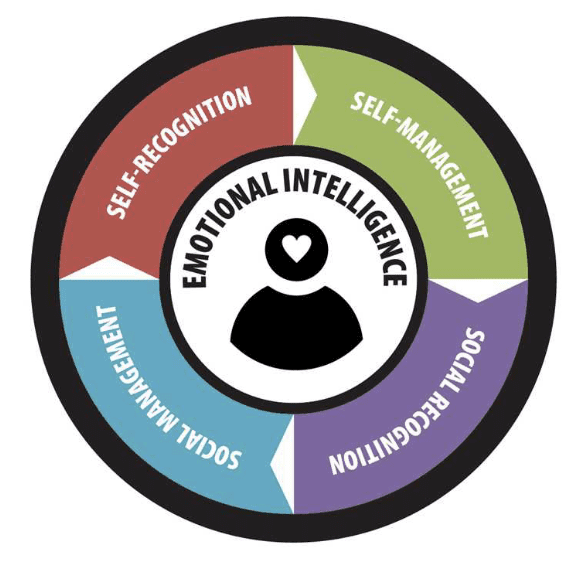
Emotional Intelligence allows a person to identify their emotions so that they may understand how those feelings influence their actions.
Daniel Goleman’s research showed how a person with a high EQ can interpret nonverbal clues to understand how others feel. They are also better at determining what situations create stress or motivate them. These skills can lead a person to develop better negotiation or conflict resolution skills, which are highly valuable in any workplace.
Many EIQ or EQ tests and assessments are available on the market.
EQ assessments, however, don’t measure emotional intelligence per se; rather, they measure behaviors within the context of emotional intelligence.
As an example, the Emotional Intelligence Appraisal (which was used by over 2 million people) states that their model measures the connections between what you see and what you do.
The behavioral questions that are asked measure the following areas:
- Emotional Self-Awareness – Are you aware of your behaviors? Do you recognize when you choose the wrong behavioral response to a situation?
- Emotional Self-Management – Are you able to control your behaviors? Are you able to focus on being transparent with what you are feeling? Can you adapt your behavior based on what you are feeling?
- Empathy / Social Awareness – Can you recognize and respond to others when they are experiencing emotional distress?
- Social Management (Relationships) – Can you coach someone through an emotionally distressing situation? Can you champion change for someone else?
Because EQ assessments measure behavior to help someone understand their emotional intelligence, DiSC can also play a crucial role in helping someone improve their EQ. After all, DiSC is one of the most popular behavioral assessments.
However, when we talk about DiSC from an EQ perspective, what we are identifying with DiSC is a person’s psychological needs and how those needs influence their behaviors.
DiSC, EQ, and our Psychological Needs.
At first glance, it might seem like DiSC, and EIQ Assessments are identifying two very different sides of a person. After all, DiSC doesn’t measure emotions. DiSC measures a person’s behavioral style and personality.
However, DiSC’s measurement of our behaviors is also an indication of our psychological needs. In fact, it’s our psychological needs that determine our behavior.
- D-Style: Individuals with this personality type are Direct, Assertive, and Forceful.
- i-Style: Individuals with this personality type are Social, High-Energy, and Enthusiastic.
- S-Style: Individuals with this personality type are Accommodating, Patient and Gentle.
- C-Style: Individuals with this personality type are Analytical, Reserved, and Precise.
Digging deeper, we can identify which psychological needs drive each style’s behaviors.
The Four, Primary DiSC Styles and their Needs...
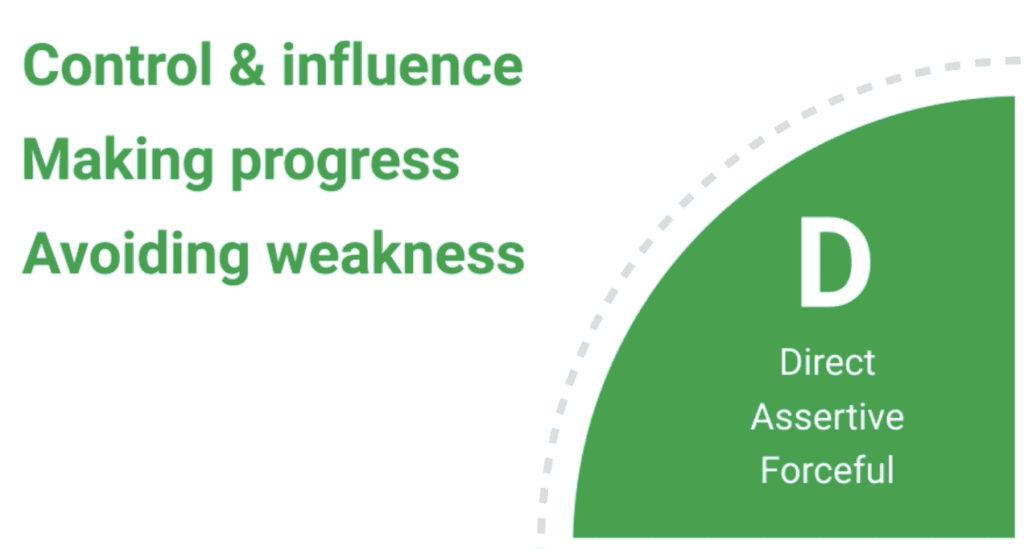
D-Style and their Psychological Needs
For the D-Style individual, their blunt, assertive, and forceful behaviors are driven by their strong need to be in control, make progress and avoid weakness (or, from their perspective, feeling weak). They maintain a need and an urgency to make progress at work. If they don’t, they might become restless.
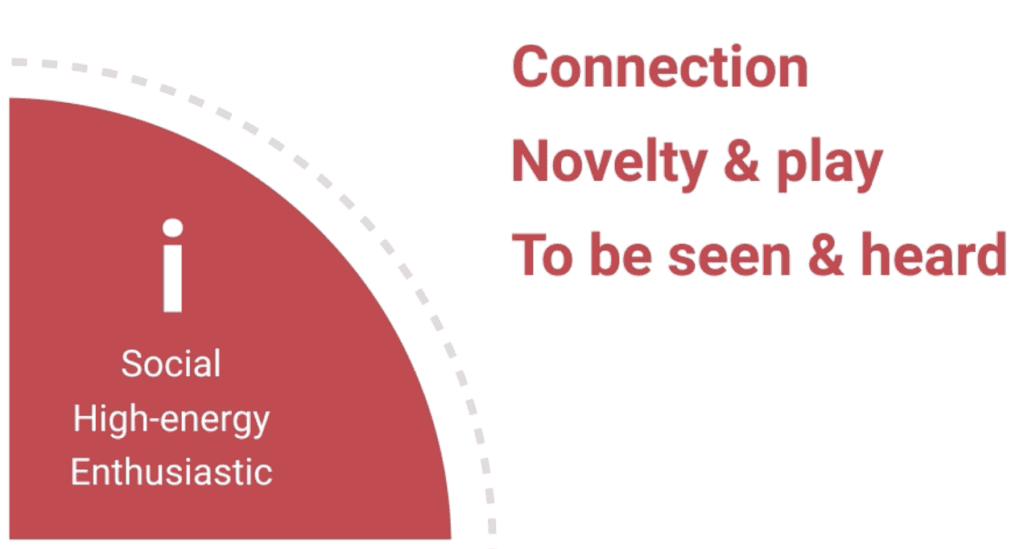
i-Style and their Psychological Needs
The i-Style individual is social, high-energy, and enthusiastic. These behaviors are driven by their need for connection. Additionally, it’s driven by their need to be seen & heard and for novelty & play.To meet these needs, you get someone who will talk a lot! They will talk to anyone to fill that need for connection more than the other DiSC Styles.
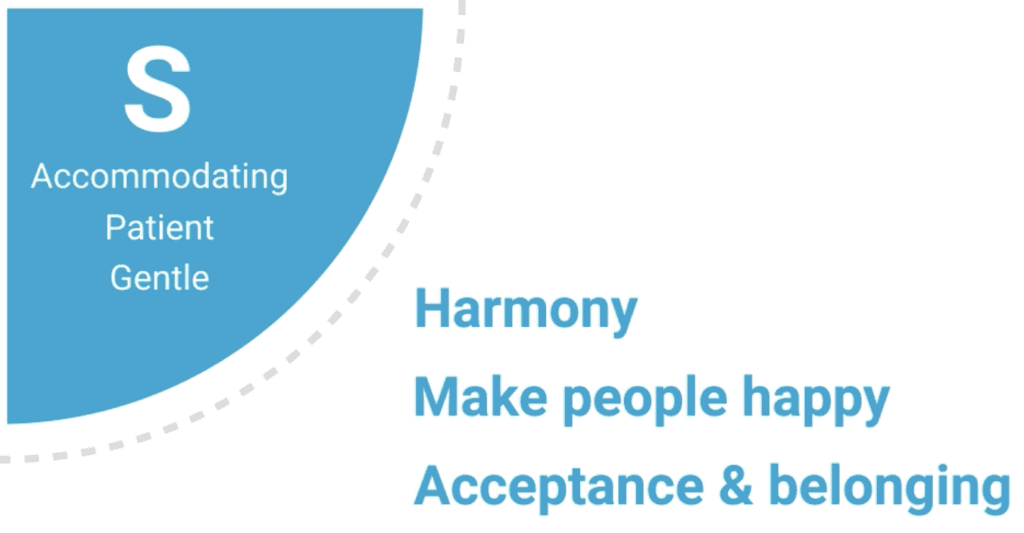
S-Style and their Psychological Needs
The S-Style is known for being accommodating, patient and gentle. What drives these individuals to behave this way? It comes from their need for harmony, acceptance & belonging. They need to make people happy. Like the other DiSC styles, everyone has this need; it’s much stronger for these individuals. They go out of their way to maintain harmony and to feel accepted.
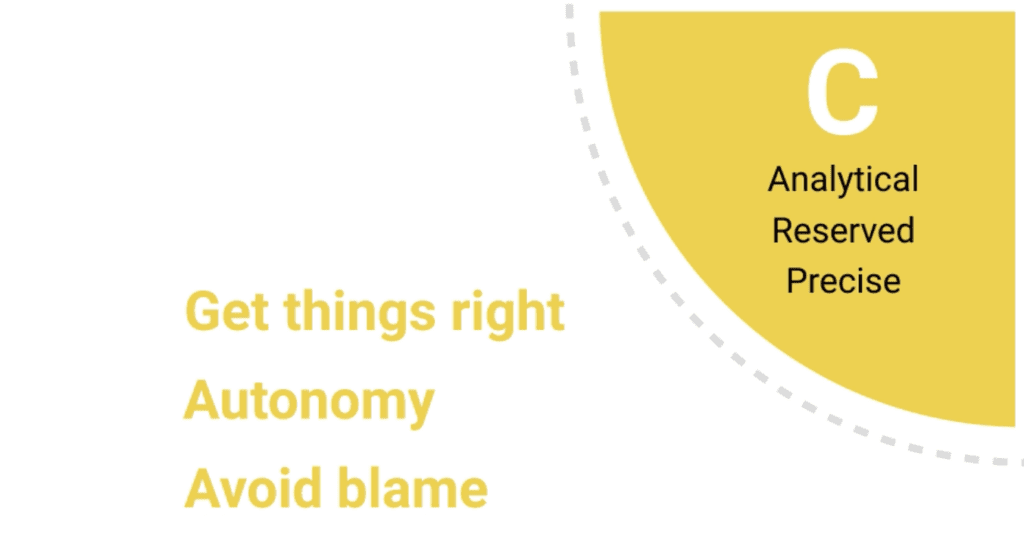
C-Style and their Psychological Needs
People with the C-Style are analytical, reserved, and precise. More than other styles, they need to get things right. That need drives their behavior of being more analytical and precise than other styles. Additionally, they are driven by the need for autonomy and to avoid blame. If they are in a situation where they don’t know how to act, they may sit it out, so they don’t act in a way they don’t feel secure.
How DiSC (and our psychological needs) affects our EQ:
Emotional Intelligence is a decision-making skill.
It helps us decide if we should lean into our emotions and make decisions through them or choose to behave differently.
From the perspective of DiSC, we might struggle to make emotionally intelligent decisions when those decisions are misaligned with our psychological needs.

For example, individuals with the D-Style have a strong psychological need to feel like they are making progress on their work. It might be challenging for them to sit in a meeting and patiently listen to someone organizing a plan or a strategy or for a new initiative.
They might be thinking, ‘Why can’t we just get started now and start the work!’
If they give in to their psychological need to progress, they may take control of the meeting and command what should be done rather than working as a team towards the shared goal.
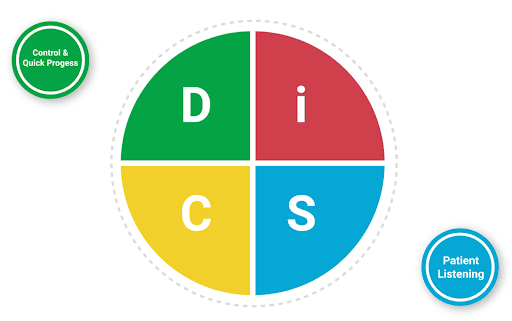
This tug-of-war happens with all of us. If we aren’t aware of our deep-rooted needs, we may make excuses for them that have no bearing on who we really are.
The person with the D-Style who didn’t listen might be viewed as socially inept because they just steamrolled the planning meeting when, in reality, they are just making decisions based on what feels right to them.
Of course, sometimes we may make decisions because we don’t care what others think, but often it’s because we just don’t know any better.
Using DiSC to Understand our EQ.
Emotional intelligence is difficult to learn because, at times, healthy behavior will align with our psychological needs.
There are times when getting angry at someone is the right choice. We might need to be overly accommodating to build a connection with someone.
Being self-aware about the behaviors we choose to use is more important than the choice of behavior. In our own emotional intelligence training, we lean on Agile EQ to help with self-awareness skill building.
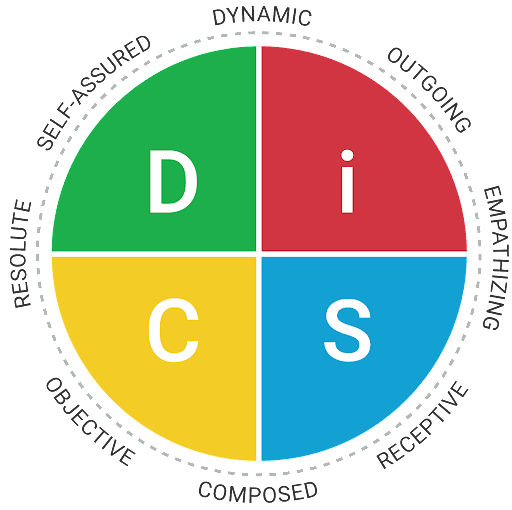
Agile EQ doesn’t encompass every behavior or emotion. However, it does help start someone down the path of being able to recognize their behaviors from an EQ perspective.
Everything DiSC Agile EQ Mindsets
The Everything DiSC Agile EQ training program introduces 8 Mindsets that all of us use or should use at some point in our workday. These mindsets help us understand the behaviors we may often lean on or the ones that we should stretch to use to be more emotionally intelligent:
- Self-Assured – This mindset requires us to assert our opinions, and rights and to project confidence.
- Dynamic – Being Dynamic, we must initiate action and influence others. We will project a strong social presence.
- Outgoing – This mindset establishes and maintains relationships. It requires us to express our emotions and unfiltered thoughts to others.
- Empathizing – When we are empathetic, we reach out with compassion and seek to understand other people’s emotional needs.
- Receptive – The Receptive mindset requires us to stay open to others’ ideas and be willing to compromise and set aside our own needs.
- Composed – This mindset asks us to reflect before acting. We must moderate our responses.
- Objective – When we use this mindset, we must separate facts from emotions. We must keep the discussion focused on logic.
- Resolute – This mindset requires us to stand our ground in the face of opposition. We must speak about problems and push through resistance.
To understand these mindsets, let’s focus on the Resolute Mindset and why someone might not engage in this mindset.
I have a close friend that I will use as an example of why this mindset is difficult to use. For the sake of this story, let’s call him Chad. Chad has taken DiSC, and he has an S-Style.
Chad lives in New York City. During the pandemic, Chad left his Queens apartment to live with his parents in Connecticut. Unfortunately for Chad, just as the pandemic hit, he re-signed his lease for another year, and he was paying $1,800 a month for an apartment he wasn’t going to use.
Chad’s situation wasn’t unique. In fact, many New Yorkers were leaving the city, and landlords were forced to let people break their leases.
Unfortunately for Chad, he couldn’t bring himself to even ask his landlord if he could break his lease. Being Resolute conflicted with his Psychological Need to be accommodating.

For Chad, his effort meter for using the Resolute Mindset would likely show that it requires a high amount of effort.
Because of how much effort it takes Chad to be resolute, he often engages in behavior where he will just give in rather than stand his ground.
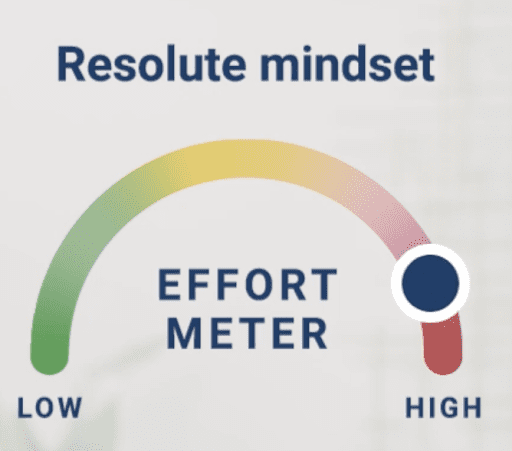
This story showcases why, at times, emotional intelligence can be so hard. The correct behavioral choice goes completely against what feels right. It can take a lot of effort to engage in behaviors we aren’t comfortable using.
Our brain does a great job of rationalizing things to meet our psychological needs, especially in areas that don’t overtly hurt us.
Could Chad afford to pay $1,800 a month even though he never used the apartment? Yes.
However, Chad would be better off in the long term if he did something more difficult in the short term. Being resolute wouldn’t hurt him, but it would be difficult because of his psychological need to maintain harmony.
For all of us who are friends with Chad, we could easily see what the right decision was for him to make, but he couldn’t bring himself to do it. Chad was aware of how strong of a hold his psychological needs had over his ability to make healthy choices for himself in the long run.

